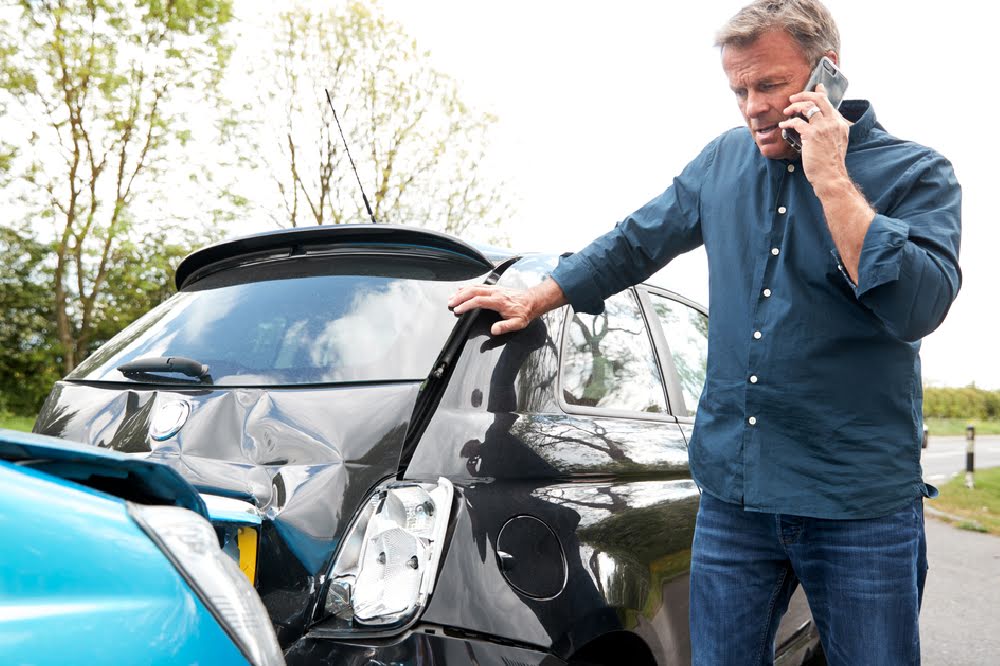Rental cars are a wonderful way to get around when traveling for work or vacation, while you’re in between cars, or while your vehicle gets maintained. Unfortunately, however, the possibility of getting in an accident in a rental car is just the same as when you’re driving your own vehicle. Although you’ll handle a rental car collision much the same as you would any other accident, rental agreements and insurance can add some complications. Let’s look at some of the factors you should consider when renting a car so you can avoid additional stress from a rental car accident.
Before You Rent a Car
Before renting a car, make sure you do your homework, especially if you are a first-time renter. Take some time to review your insurance policy so that you know exactly what’s covered when you rent a car. In the event of an accident, you’ll feel more at ease knowing that you have protections from your insurance.
Make sure to check if your insurance policy covers rental cars at all. If so, examine how much damages are covered, and what kind of deductibles you are responsible for paying. Some insurance companies offer a substitute vehicle clause, covering your rental car as if it is your own.
If your insurance doesn’t include a substitute vehicle clause or does not offer enough coverage for your rental car, consider purchasing insurance that your car rental company offers. Keep in mind that when you buy insurance from a rental car company, you must sign a collision damage waiver, which caps the amount you or your insurance company would pay if you were in an accident.
As a car renter, you must understand that you are assuming all responsibility for the vehicle. As soon as you sign the agreement, you become liable for any damages that occur during your rental period, regardless of whether you are at fault.
After a Rental Car Accident
After a rental car accident, it’s important to take the following steps to ensure everyone’s safety and properly document what happened so you can best position yourself for securing a settlement from your insurance company.
- If possible, ensure you and anyone involved is safe and out of harm’s way.
- Call 911.
- Take photos of all damages before anything is moved.
- Collect statements or at least contact information of any witnesses.
- Gather insurance information from the other driver.
- Alert the rental company.
- Alert your insurance company.
- Give law enforcement your account of what happened.
Even if you or other parties involved in the Indiana car accident wish to move on without notifying law enforcement, it’s wise to involve authorities to submit an official statement about what happened. This helps in determining who was at fault for the collision. Additionally, collecting photo evidence and witness testimonies will strengthen your case if you have to make a personal injury and damage claim.
Determining Fault
Once insurance companies determine who is at fault, the process of paying compensation can begin. However, until then, you or your insurance company may need to cover payments for the damages.
Indiana is a comparative fault state, which is when both parties involved are held responsible for covering some damages. The amount for which each party is held responsible depends on how much they are found to be negligent.
For comparative negligence to apply, a driver must be found less than 51% at fault. In that case, drivers may pursue a personal injury claim from the at-fault driver to cover damages.
Submitting a Personal Injury Claim
Navigating insurance claims can be confusing, especially when a rental car is involved. You should work with an attorney who specializes in personal injury claims and who understands Indiana law’s nuances. At Crossen Law Firm, that’s our specialty. We care for our clients and work hard to ensure they get their compensation in full. We provide a hassle-free experience so you can focus on healing after your accident. Contact us today at 317-401-8626 if you or a loved one have been involved in a rental car collision.

 317-401-8626
317-401-8626 
.jpg)